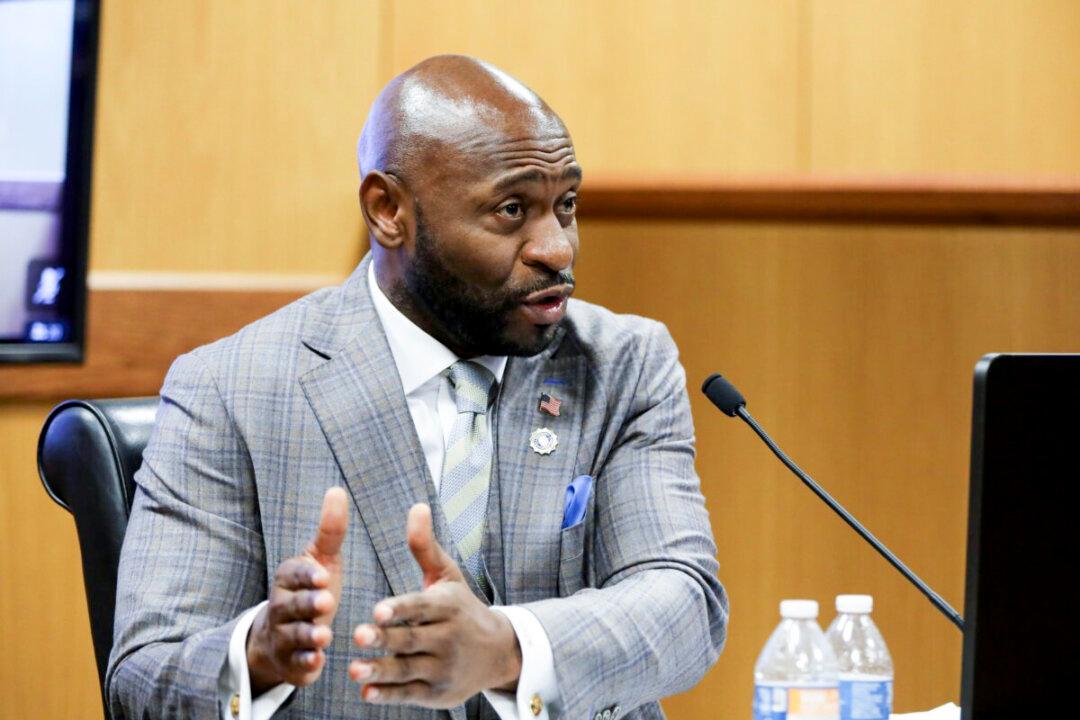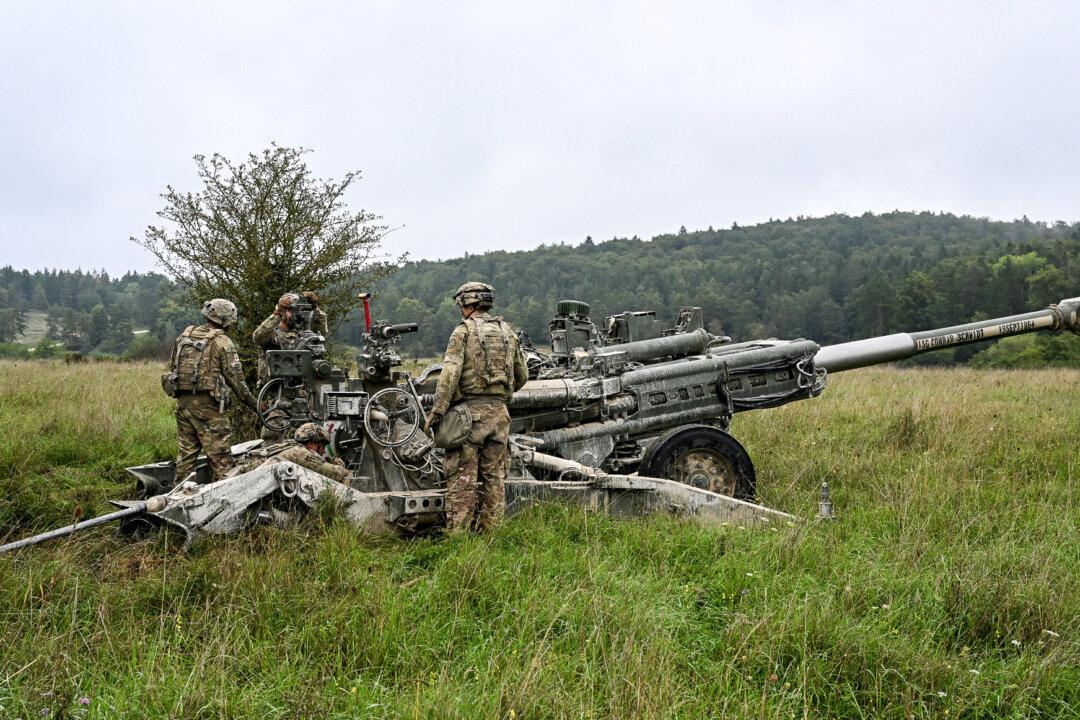Several victims and relatives of victims of the mass shooting at the Old National Bank in Louisville, Kentucky last April are suing the gun store that sold the AR-15-style rifle used in the attack.
Their suit alleges that the gun store ignored or overlooked obvious warning signs shown by the purchaser who did the shooting.
Dana Mitchell, Julie Andersen, Jimmy Evans, and Stephanie “Dallas” Schwartz, who were all injured but survived the attack, filed the lawsuit against the gunshop in a Jefferson County, Kentucky court on Jan. 22, along with the families of James Tutt and Joshua Barrick, who were killed.
The lawsuit alleges that the gun shop, River City Firearms, acted with negligence when it sold a rifle and various accessories to the shooter, Connor Sturgeon.
Five people were killed and eight were injured in the April 10, 2023 shooting. Mr. Sturgeon was killed in an exchange of gunfire with police officers.
The plaintiffs in the case are represented by lawyers from the Chicago law firm Romanucci & Blandin, and Louisville attorney Tad Thomas, as well as lawyers with Everytown Law—the litigation arm of the gun control advocacy group Everytown for Gun Safety.
While Mr. Sturgeon had no prior criminal record that would have come up on a background check like the kind required in all commercial firearms transactions, the complaint alleges “red flags were present in spades” when he purchased his rifle from River City Firearms.
The complaint alleges that River City Firearms, as a federal firearms license-holder (FFL), would have had specialized training “to spot individuals who are incapable of handling firearms responsibly or may have nefarious intentions” and a heightened responsibility to make sure suspicious sales don’t proceed.
The owners and clerks at River City Firearms had an even greater reason to be careful of its firearms sales, according to the lawsuit, because they had received a prior warning from the Bureau of Alcohol, Tobacco, Firearms and Explosives (ATF).
The federal agency reportedly identified River City Firearms as a “Top 100 trace” gun store, meaning it was a prime source for guns used in crimes.
During a 2017 inspection to ensure compliance with gun laws and FFL regulations, the ATF allegedly notified River City Firearms of numerous potential straw purchasers, firearms traffickers, and one convicted felon who had bought or attempted to buy firearms at the store.
Buyer Was Nervous: Witnesses
According to the complaint, eyewitness testimony will show that Mr. Sturgeon displayed a level of nervousness that store clerks at River City Firearms should have seen as an obvious warning sign.“Eyewitness testimony from within the store confirms that he demonstrated a complete lack of knowledge or experience with firearms and that he spoke in an unusually quiet tone and appeared embarrassed upon making eye contact with others, lowering his head and averting his gaze,” the complaint reads.
Further, Mr. Knighton argued, an apparent lack of experience with firearms should not be seen as disqualifying, because gaining experience is often aided by purchasing and practicing with a firearm.
NTD News reached out to the law firms representing the plaintiffs but did not receive a response by press time.
AR-15s ‘Poorly Suited’ for Home Defense, Suit Says
The complaint notes that the ATF and private firearms industry groups like the National Shooting Sports Foundation (NSSF) offer a variety of resources to FFL holders to help them identify suspicious behavior, and asserts that these materials commonly recommend that FFL holders inquire about a purchaser’s stated intended use for their firearm.Mr. Sturgeon reportedly told the gun store clerk that he wanted to buy the AR-15-style rifle after his friend’s home was recently burglarized. The lawsuit asserts that this stated reason should have been a red flag for the gun store clerks.
Such rifles are “particularly poorly suited” for home defense by a novice shooter and, “any responsible and experienced firearm salesman would readily admit” to that fact, the suit said.
Among NTD News’s detailed list for the plaintiffs’ attorneys were questions about opinions by firearms sales professionals and other experts they relied upon to determine the efficacy of an AR-15-style rifle in a home defense scenario.
The plaintiffs argue that rather than selling AR-15 products as suitable for home defense, the clerks at River City Firearms should have regarded them as “the preferred firearm for mass shooters” and weapons “originally designed to be extremely effective in combat.”
Shooter Wanted Gun Control
The Louisville Police Department released journal entries Mr. Sturgeon wrote before the shooting.“I have decided to make an impact. These people did not deserve to die, but because I was depressed and able to buy ... they are gone,” Mr. Sturgeon wrote. “Perhaps this is the impact for change—upper class white people dying. I certainly would not have been able do this were it more difficult to get a gun.”
At another point, he wrote, “I know our politicians are solely focused on lining their own pockets, but maybe this will knock some sense into them.”
“If we want change, it will take enormous action,” he also wrote.
Mr. Sturgeon repeatedly remarked on how he found it effortless to purchase the rifle.
“THIS IS SO EASY,” he wrote in one entry. “I knew it would be doable but this is ridiculous.”
The Protection of Lawful Commerce in Arms Act (PLCAA) may become a factor in this lawsuit. Enacted in 2005, the federal law broadly protects firearms industry members from lawsuits stemming from the criminal misuse of the products they sell.
Despite the PLCAA, gun control activists and litigants have sought ways to sue firearms industry members in recent years.
That lawsuit argues that those gun manufacturers “deliberately facilitate gun trafficking” into Mexico.







